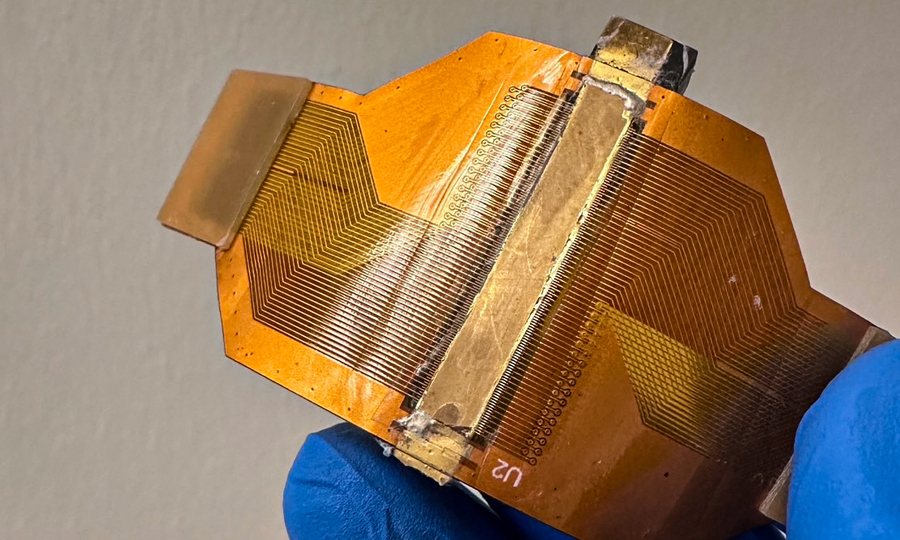In an open-access study appearing today in Science Advances, the team reports that the sensor can send sound waves through the skin and into the body, where the waves reflect off internal organs and back out to the sticker. The pattern of the reflected waves can be read as a signature of organ rigidity, which the sticker can measure and track.
“When some organs undergo disease, they can stiffen over time,” says the senior author of the paper, Xuanhe Zhao, professor of mechanical engineering at MIT. “With this wearable sticker, we can continuously monitor changes in rigidity over long periods of time, which is crucially important for early diagnosis of internal organ failure.”
The team has demonstrated that the sticker can continuously monitor the stiffness of organs over 48 hours and detect subtle changes that could signal the progression of disease. In preliminary experiments, the researchers found that the sticky sensor can detect early signs of acute liver failure in rats.

